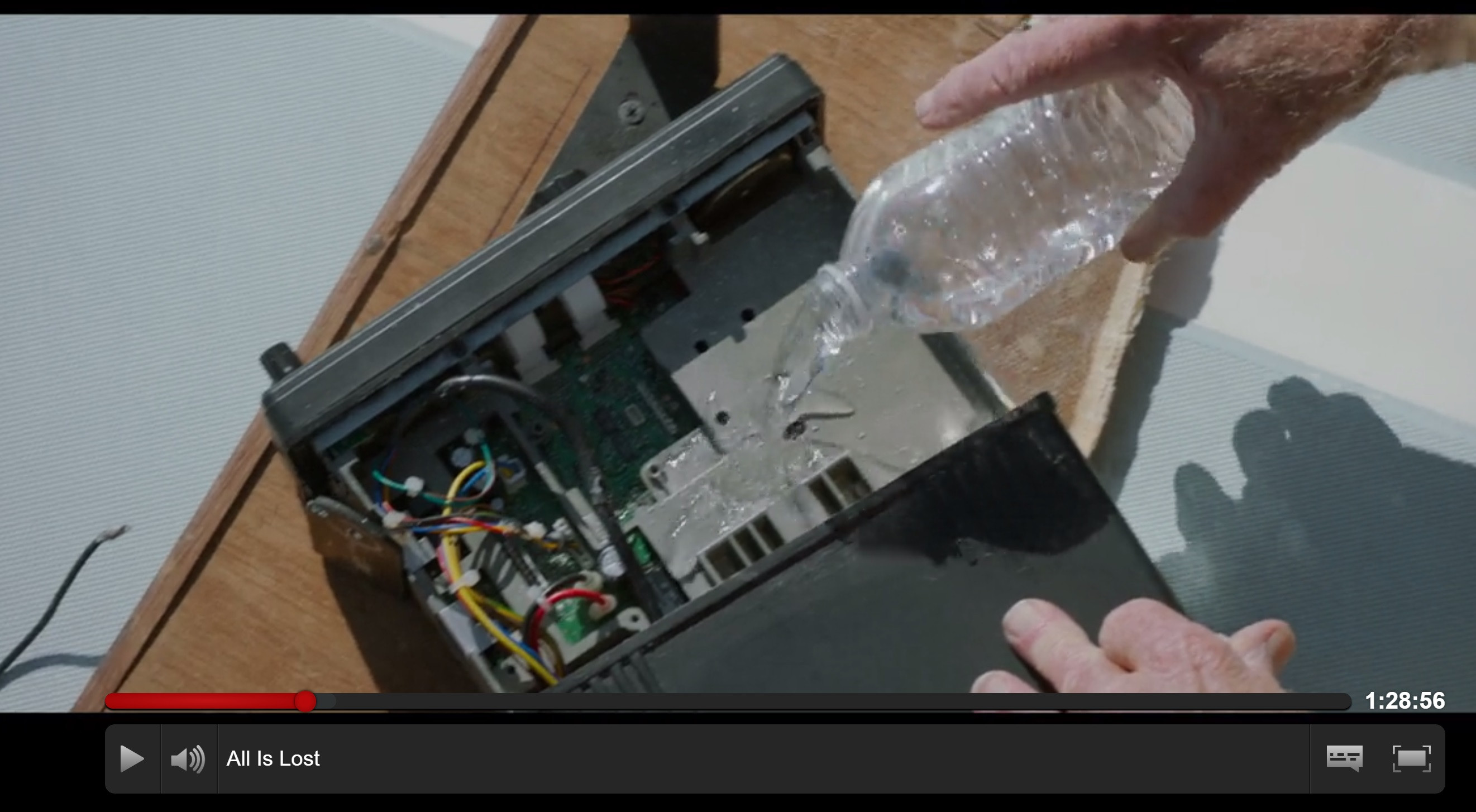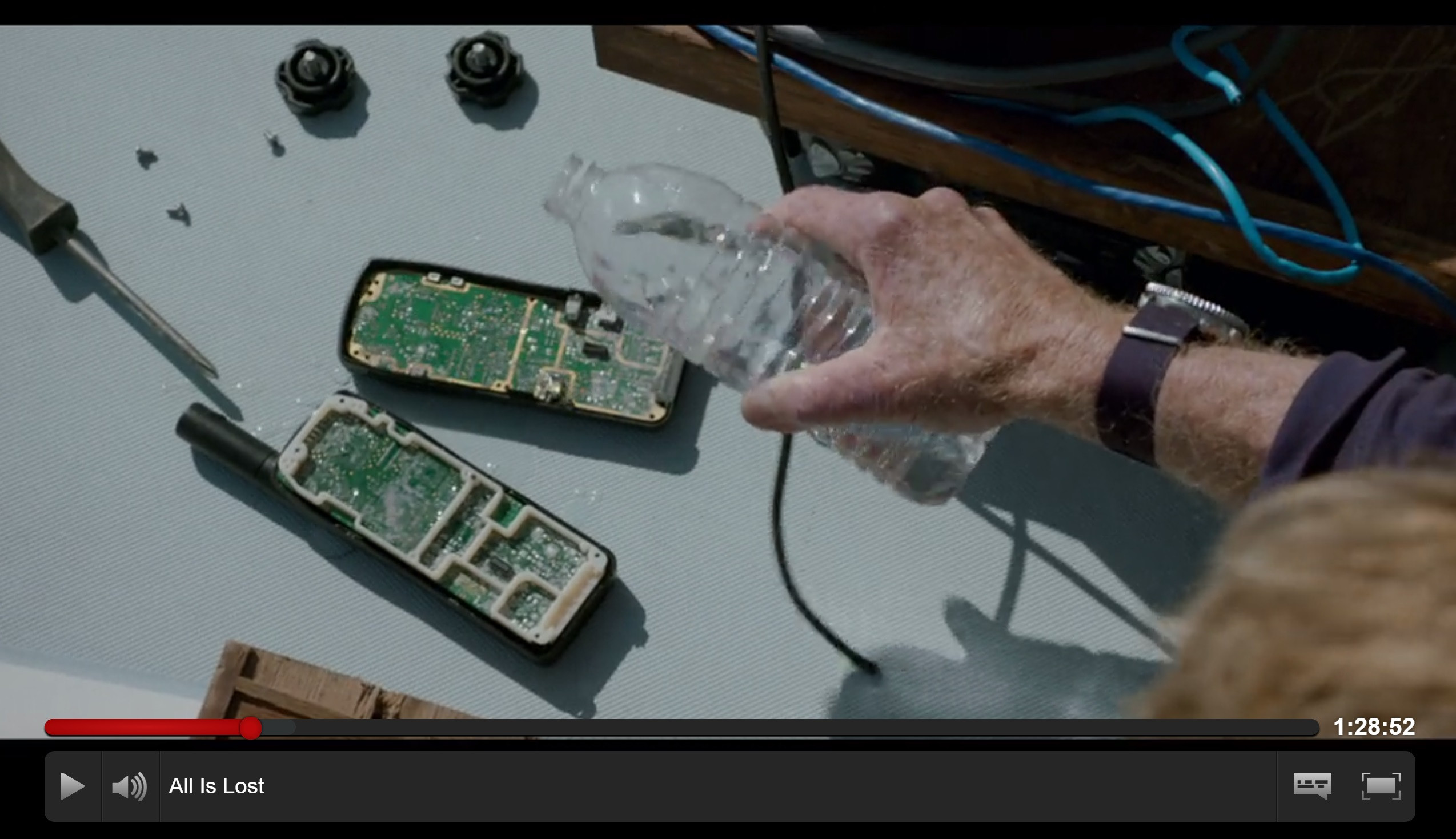I'm at a loss for why Robert Reford poured water on his radio and cellphone in All Is Lost. The movie is on Netflix and the scene in question is at 16:50. Any ideas?
1 Answer
Redford pours water on the electronics to remove conductive sea salt from them so that they can dry out and can (hopefully) be used again. He tries to use the radio the next day by connecting the boat's service battery to it.
"The next day he continues patching the hole in the side of the boat and pumping more water. It's slow, exhausting work. He pulls out the radio equipment and pours bottled water on the interior of the devices to remove conductive sea salt from them. He sets them out to dry on deck. The next day, he's able to complete cleaning the cabin with a sponge and mop. His fiber glass patch seems tentative, but at least keeps water out. He drags one of the boat's service battery on deck and hooks it to his radio. The radio does not work. He consults his navigation charts. He goes below and as he's looking through a book on celestial navigation, he hears someone speaking on the radio. He hurries back up on deck and makes an SOS call. It doesn't appear to work before the radio goes dead."
-
1Which is partially realistic. In real life you would want to use high percentage alcohol or atleast purified water. Plain bottled water could add contaminates. But it's better than nothing.– cdeCommented Jun 11, 2016 at 2:29
-
But salt isn't conductive is it? Salt water is conductive, but pure salt I don't think so. "Solid salts do not conduct electricity." en.wikipedia.org/wiki/Salt_(chemistry)#Conductivity Commented Jun 11, 2016 at 2:33
-
4It's really hard to dry out salt short of baking. It's hygrosopic so even dry salt in a humid environment will become conductive as it absorbs humidity. And any salt deposited by a dunk in salt water will retain it's conductive nature. Flushing and diluting it with fresh water reduces the chances of small particles of salt and salt water causing issues. And false, solid salt will conduct, given a high enough voltage, like any insulator. Just won't conduct at low or ultra low voltage (120 volts and under.– cdeCommented Jun 11, 2016 at 2:38
-
@cde, It appears that the solubility of salt in alcohol (of various types) is very low compared to the solubility in water. It is probably more effective to use a water rinse first. Ideally that would be distilled water, but the situation he was in does not appear to provide many options. My personal preference would be to then flush with significant quantities of 99% Isopropyl Alcohol to flush out the remaining water. Alternately, place in a plastic bag with some uncooked rice, which will absorb water vapor, and allow it to sit in the sun for several hours.– MakyenCommented Jun 11, 2016 at 8:17
-
To me it seems like giving the electronics another dousing of water would be a greater risk than having some salt coated on them that could be shaken or rubbed off. But this does seem to be the correct answer. Thanks! Commented Jun 11, 2016 at 22:07


